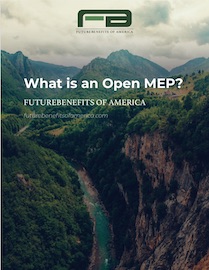In the world of traditional 401(k) plans, revenue sharing has become as common as filing a tax return. While the commonality of these events to those of us who operate as service providers in the industry is second nature, to the participants and sponsors it may be a new revelation. For those who are not aware, revenue sharing is the idea of transferring fees from investment companies to service providers who support 401(k) plans. Instead of charging their fees directly, they receive them without the sponsor and participants sometimes ever knowing. This is one of the reasons it is so difficult to know exactly what is the true cost of a 401(k) plan.
The discussion of legislation forthcoming from ERISA on section 408(b)(2) has formed a mushroom cloud of concern over fees and how participants and sponsors will react once they actually see them in full view.
With full fee disclosure, the requirement to show revenue sharing received from the mutual fund families will be new to most. Even those offering full disclosure do not make it part of a participant statement. As we travel down the road of scrutiny of fees, this could all be eliminated by simplifying the process of fund selection.
One way is to add Exchange Traded Funds (ETF) to the menu. ETF’s solve many of the problems that exist. By utilizing the ETF strategy, there are no revenue sharing issues to deal with. In addition to the low expense ratios and complete diversification allowed by ETF’s, the only fees that apply are for the services rendered of the plan. In other words, the true cost of operating the plan exist. The cost of the funds and fees associated with service providers to the plan would be in plain view.
However, if overall the expense is lower from the revenue sharing of the funds, most of the time it is not applied back to the participants. Most software systems do not have the ability to apply it directly to the participant that invested in that particular fund. The normal scenario is that revenue sharing comes back to the service provider and the sponsor’s cost out of pocket is reduced. This inevitably causes lower returns for the participant and lowers the earning dollars as it relates to retirement.
Advisors and service providers have been hiding behind the mask of revenue sharing. It is time for full disclosure to be the norm in our industry instead of having ERISA and congress require certain disclosures to be made. An industry has always fared better by regulating themselves instead of having it forced upon them.
Keeping a simplistic approach to fees has always proved to be easier to explain and has been the approach we have tried to adhere to here at FutureBenefits of America. We’d love to talk to you about how open and simple approach to fees can help you plan your company’s retirement.


